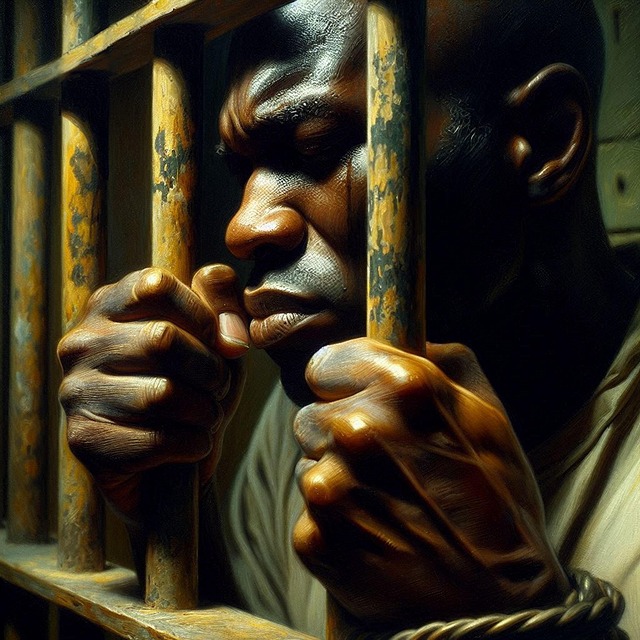Environmental Crime Trials involve prosecuting pollution, habitat destruction, and wildlife trafficking with severe penalties. These trials share complex legal dynamics as in employment law cases, where lawyers navigate intricate landscapes for just outcomes. The settlement process includes negotiations between specialized attorneys, clients, and community groups, influencing defense strategies and verdicts. This collaborative approach balances individual rights and environmental accountability through strategic defenses and pre-trial settlements.
Environmental crime trials are a critical aspect of holding perpetrators accountable for ecological damage. This article delves into the intricate world of these legal proceedings, exploring their definition and scope, key players involved in the settlement process, legal frameworks tailored to environmental cases, and the impact—along with challenges—of securing convictions. By understanding these dynamics, we gain insights into strategies for effectively addressing and prosecuting environmental crimes, with a focus on the unique considerations distinct from standard settlement processes for employment law cases.
- Understanding Environmental Crime Trials: Definition and Scope
- Key Players Involved in the Settlement Process
- Legal Framework and Strategies for Environmental Cases
- Impact and Challenges of Successfully Prosecuting These Crimes
Understanding Environmental Crime Trials: Definition and Scope

Environmental Crime Trials focus on prosecuting individuals or organizations responsible for damaging the environment through illicit activities. These trials cover a wide range of offenses, from pollution and habitat destruction to illegal dumping and wildlife trafficking. The scope includes both criminal and civil cases, with potential penalties ranging from fines to imprisonment. Understanding these trials is crucial in the context of white collar and economic crimes, as many environmental violations involve complex financial schemes and sophisticated white collar defense strategies.
The settlement process for employment law cases often mirrors this broader dynamic. Across the country, legal teams navigate intricate legal landscapes to secure just outcomes. In environmental crime cases, this might involve negotiating settlements that not only compensate victims but also deter future misconduct. Similarly, effective white collar defense tactics in these trials require a deep understanding of the underlying crimes and their economic motivations, ensuring a fair and balanced approach to justice.
Key Players Involved in the Settlement Process

In Environmental Crime Trials, several key players are involved in the intricate settlement process for employment law cases. These include lawyers specializing in environmental and employment law, who play a pivotal role in negotiating settlements and ensuring legal compliance. They work closely with their clients, who may be individuals or organizations facing environmental charges, to determine the best course of action. The general criminal defense strategy often involves a combination of challenging the evidence, raising legal defenses, and exploring potential resolutions before a trial.
The philanthropic and political communities also have a significant influence on these cases. Environmental non-profit organizations may intervene, pushing for stricter penalties or offering support to victims. Moreover, public pressure and political will can shape the outcome, with stakeholders advocating for justice and meaningful environmental protections. This collaborative effort among legal experts, clients, and community groups contributes to achieving winning challenging defense verdicts that not only safeguard individuals’ rights but also promote accountability in environmental protection.
Legal Framework and Strategies for Environmental Cases

The legal framework for environmental crime trials is complex, requiring a deep understanding of both environmental regulations and criminal law. In many jurisdictions, these cases fall under specialized environmental courts or divisions within existing criminal courts, ensuring focused adjudication. The process often involves multiple stages, from initial investigation to prosecution, with opportunities for pre-trial settlements that can significantly impact the outcome. Similar to the settlement process for employment law cases, negotiation plays a crucial role in reaching agreeable resolutions before escalating to trial.
Strategizing for environmental cases demands a nuanced approach. Defendants facing these charges often employ general criminal defense tactics while aiming for achieving extraordinary results. This may involve challenging the evidence, questioning expert testimonies, and exploring potential mitigating factors unique to the respective business. By navigating the intricate legal landscape and employing strategic maneuvers, defendants can mitigate risks and secure favorable outcomes in environmental crime trials.
Impact and Challenges of Successfully Prosecuting These Crimes

Successfully prosecuting environmental crimes presents a unique set of challenges, but also offers an opportunity to hold perpetrators accountable and deter future misconduct. These cases often involve complex scientific evidence, intricate regulatory frameworks, and significant financial implications. Prosecutors must navigate technical jargon and demonstrate a deep understanding of ecological systems to build compelling cases. Additionally, securing cooperation from witnesses and experts can be difficult, as these crimes may have been carried out covertly over an extended period.
Despite these hurdles, achieving extraordinary results in environmental crime trials is feasible. A well-structured settlement process for employment law cases can serve as a model for resolving environmental disputes. By fostering open communication, encouraging early negotiations, and considering alternative dispute resolution methods, both parties can avoid the lengthy and resource-intensive nature of jury trials. This approach not only facilitates quicker resolutions but also allows for more flexible outcomes, ultimately leading to better outcomes for all stakeholders involved, including the environment.
Environmental crime trials play a pivotal role in holding perpetrators accountable and upholding ecological integrity. By understanding the definition, key players, legal frameworks, and strategies involved, we can effectively navigate the settlement process for these complex cases. Success in prosecuting environmental crimes not only serves justice but also fosters a culture of sustainability and responsibility. As we’ve explored, overcoming challenges requires robust cooperation between governments, environmental agencies, and legal experts to ensure meaningful outcomes, ultimately contributing to a greener and more just future.






